TCC provides a unique & forward-thinking digital intensive-care & AI-guided prediction service
24/7 service + real-time high-frequency data + proactive method of preventive treatment + highly trained intensivists + next generation technology
Telehealth is telehealth, right?
TCC offers a digital, forward-looking remote ICU service solution in terms of ehealth enabling hospitals to ensure the highest quality of care in the ICU. The Patient health and staff satisfaction are our main goals. Today, telemedicine is a generic term and often used to describe digital health technology such as video consultations that are offered by general practitioners or video rounds offered by university hospitals.
At TCC, we interpret telehealth in a new, forward-looking way, by offering 24/7 remote digital intensive-care services while processing real-time high-frequency data for AI-guided prediction of the patient’s medical course, enabling TCC to provide a new, proactive method of preventive treatment. The unique combination of telemedicine consultation by trained intensivists and the latest state-of-the-art technology at TCC results in standardized, guideline-based powerful medical solutions 24/7, with very flexible service options.
Our clip explains to you our unique service and potential.
Does better tech (AI) mean better care?
New technologies such as artificial intelligence will enable clinicians to deliver a data-driven telehealth therapy. However, AI will never replace humanity and personal care at the bedside. Therefore, better tech does not provide better care but, enables new methods of personal care.
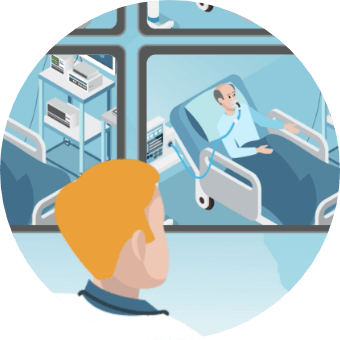
How does telemedicine work ?
Read more
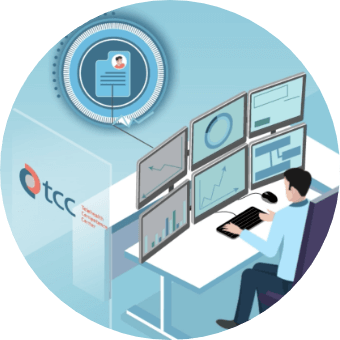
What is important about tele-intensive care ?
Read more
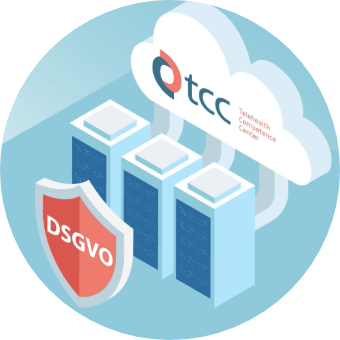
How safe is tele-medicine ?
Read more
These services can support healthcare providers in hospital, outpatient, and emergency systems, but tele doctors can also be used in direct communication with patients via smartphone applications. It varies not only according to the healthcare specialty but also according to the technological capabilities of the used system. For example, do some services allow bidirectional audio-video communication, while others depend simply on text exchange.
The main advantage of digital healthcare is the remote provision of service in real time. This removes limitations and creates access to high-level medical care. In times of increasing shortage of medical experts in all fields and growing demands on healthcare systems, telemedicine is and will be very useful to address issues of provider burnout and insufficient patient capacity.
Successful telemedicine relies on the presence of a capable local health care. As many providers offer telemedicine in different contexts and capacities, clarification of this term is necessary. Telemedicine can vary according to its range of monitoring and grade of intervention.
Germany recently opened up the market for general practitioners to offer video consultations billable to patients’ health insurance. But modern telemedicine can provide much more, including the remote, continuous connection of medical competence centers with hospitals to deliver high-quality care as a partner and supporter of the bedside team. The key competence of high-quality, clinical surveillance using telemedicine is that it cares for the patient at all times without any distraction or fatigue, and enables easy administrative organization.
Read less
The tele-ICU team with one highly experienced intensivist can provide service for 100 or more ICU patients at any time by leveraging high-quality telemedicine clinical decision support, made possible by predictive algorithms and artificial intelligence. Machine learning can enable the tele-ICU team to identify patterns in large data sets of high-frequency, real-time patient data (e.g. vital parameters, laboratory results, ventilator set-up, etc.), to provide support that can range from detection of unintentional pharmaceutical interactions to prediction of deterioration and outcome of ICU patients.
This transformation in ICU care will result in large medical competence centres providing this type of high-end telemedicine and will create new specialities such as 'Telemedicine Specialist'.
Again, telemedicine is not a competitor, but rather a supporter, of ICU performance optimization. Collaboration between centralized centres and bedside teams will lead to improved outcomes, shorter length of stay, decreased purchased care costs and greater staff satisfaction.
The 'Society of Critical Care Medicine' recently recommended replacing the term 'tele-ICU' with 'tele-critical-care' due to the fact that existing tele-ICU providers have extended their service to other departments (e.g. emergency department, stroke unit), indicating fast adoption of telemedicine in broad applications.
Furthermore, many medical smartphone apps exist, though quality and relevance varies greatly. As smartphones permeate modern daily life and routine, there is growing interest in utilizing them in telemedicine; however, at this point there is limited large-scale evaluation of this use.
Read less
Importantly, data protection and system security need to be carefully considered in the development of telemedicine programs, as patient privacy is important in building and maintaining trust. Fortunately, when telemedicine is employed, the majority of patients are happy to have their physician judiciously share personal health data with a third-party telemedicine provider to obtain valuable expert opinions and the potential for improved outcomes. The current standards for online security and protection in telemedicine are high. A local two-step encryption based on the latest standards ensures data security. All services are hosted in Germany on highly secure Telekom healthcare platforms.
In today’s Germany, discussion is aimed towards a transformation of the healthcare sector to a digitally supported, fully connected service network. In 2019 the Minister of Health, Jens Spahn, initiated the digital care act (Digitales Versorgungs Gesetz – DVG) as a new baseline for digital integration and successful transformation.
Read less
How collaborations between hospitals and TCC work
Stress relief & service for the hospital
Benefit from a FORWARD-LOOKING DIGITAL CONCEPT
24/7 ICU SERVICE
- High quality of intensive care at all locations
- PDMS first-line IT service via TCC
- Enhanced economy
RISING SATISFACTION OF STAFF
Less fluctuation, less burnout, fewer external workers
SCIENCE
Analytics, publication
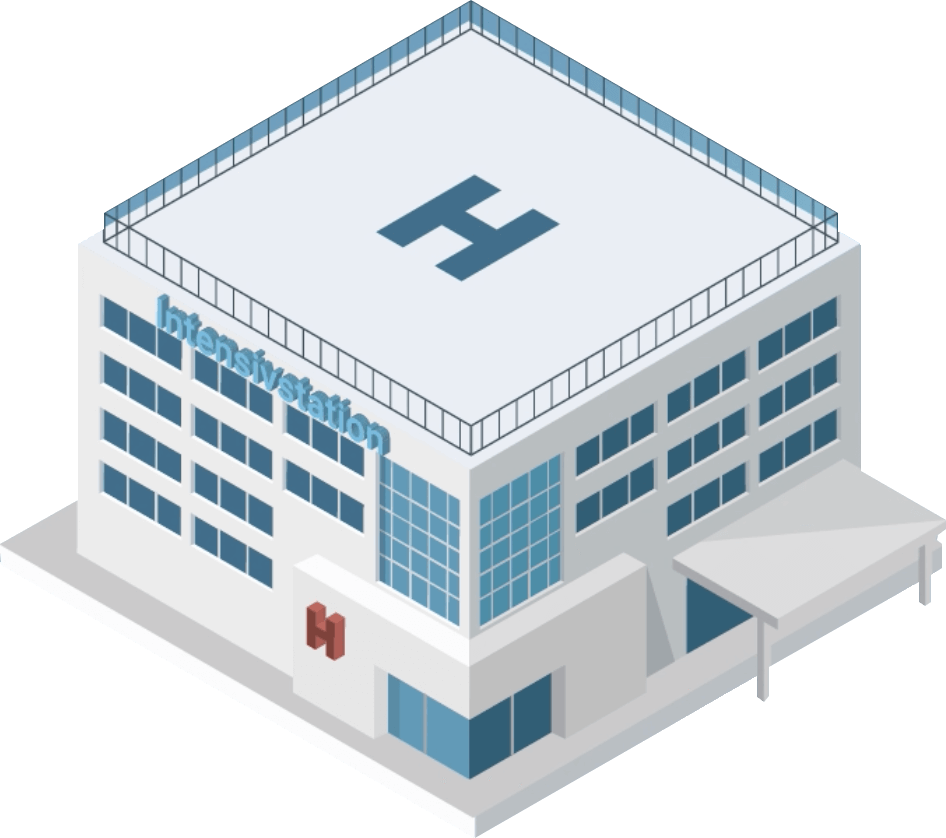
Provision & support by TCC
WE TAKE CARE
PATIENTS
- Privacy of patient data via ISO certification and Telekom cloud based in Germany
ICU PHYSICIANS
- Support with decisions via virtual telehealth
such as consultative exchange
- Relief without loss of control
IMPLEMENTATION
Contract/strategy, implementation,
go-live/service
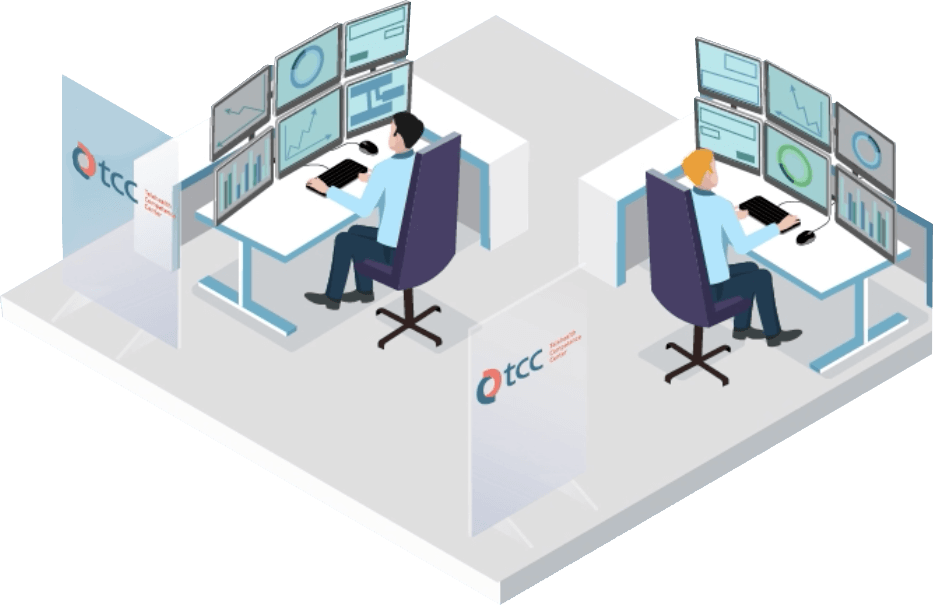
Our partners

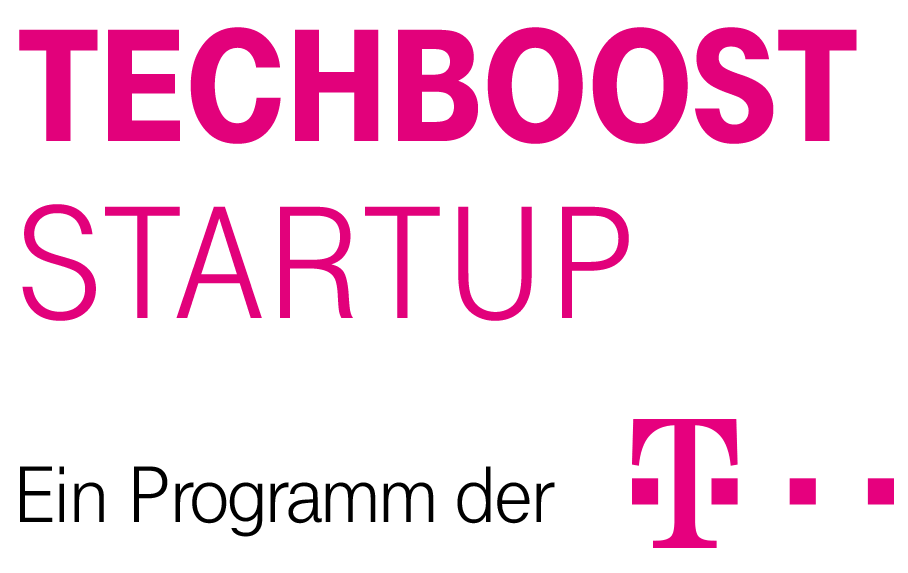
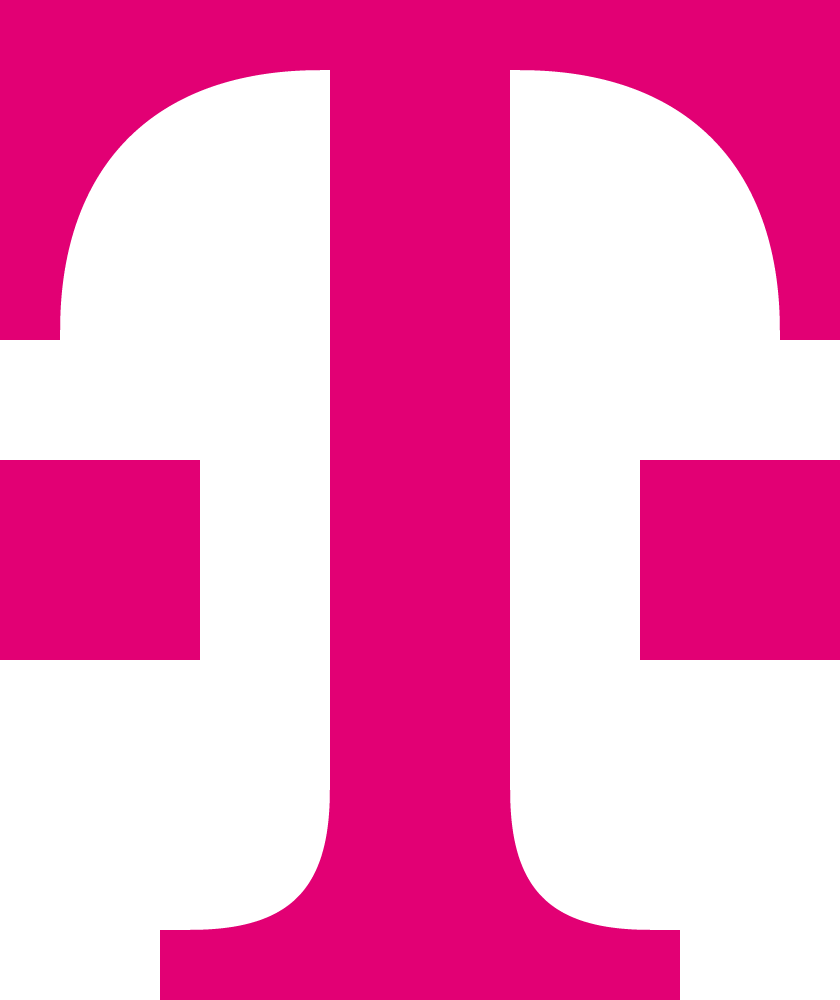



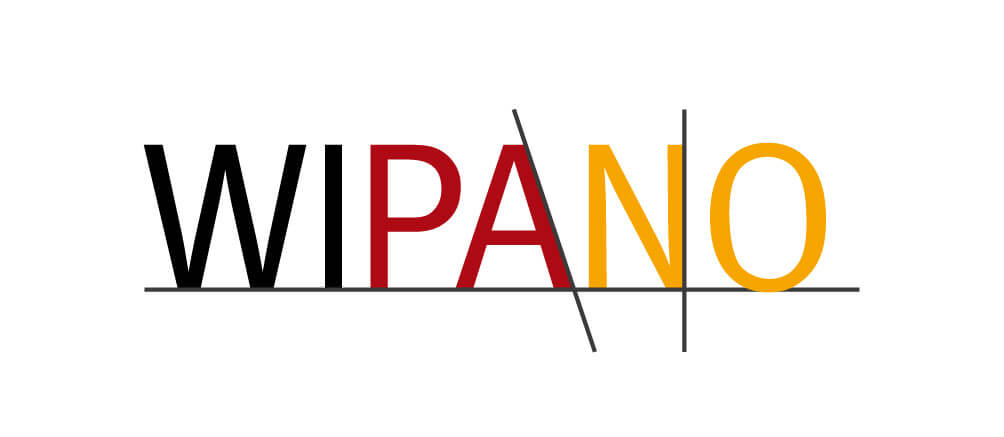
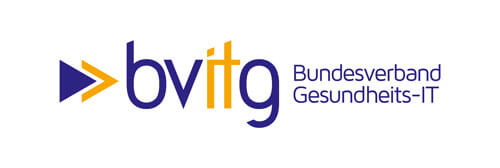




Who’s doing the work?
We have an exceptional founder - and management-led team, with more than 40 years of experience in the relevant fields of the healthcare industry and corresponding medical expertise. Together with our biostatisticians, we are developing medicine for the future with the help of artificial intelligence … everywhere.

Prof. Dr. med. Christian Storm
CEO & CO-FOUNDER
Specialist in Internal Medicine, Intensive Care and Emergency Medicine

Dipl. Betriebswirt David Barg
CEO & CO-FOUNDER
Managing Partner
Nurse Practitioner & Paramedic

Dr. Alexander Krannich
(MSC)
Head of Analytics & Data Science
Datascience, Machine Learning, Clinical trial

Dipl.-Ing. (FH) Christian Siewert
Head of IT, specialist in IT, digital strategy, data security, graduate engineer of computer science

Can AI in ICU improve forecasting in
other areas?
‘Predictive healthcare analytics are the future of personalized medicine to improve patients’ health and maximize disease prevention. This field has shown recent breakthroughs in decision-supporting artificial intelligence. Intelligent systems will provide evidence-based, patient-individual decisions, to reduce unexpected complications, uncover undiagnosed disease and help to create a tailored therapy path for every single patient.
Further applications are patient motivation and adherence, therapy quality improvement and improvement of administrative procedures with cost reduction. TCC uses machine learning, such as artificial neural networks, to create algorithm-based artificial-intelligence solutions, based on big data gathered from many patients.'
Read more
Is better care the key to more efficiency?
‘Absolutely! Satisfied employees who are enabled to do their work with foresight on the basis of digital documentation.
At their side, artificial intelligence that ensures individual and patient-oriented care. The result is a verifiable and comparable environment that enables increased efficiency in all areas.
Do yo want to know how it works?
Visit us in Hamburg and see for yourself.’
Can’t get the staff?
'Staff shortages in all healthcare departments are nothing new. What is new is that the deficiencies that have long been endured are now coming to light and creating noticeable gaps. The helplessness of all health services is striking. But the key is simple and reflected in the benefits of telehealth.
Connect new technologies meaningfully with the needs of nurses and physicians to close gaps, plan resources into the future and make workplaces digital and attractive again. Don’t replace, complement by tele ICU. So that the medical professionals can return to the bedside, to their patients. That is what they want, no more and no less.
Staff (physicians/nurses) is passionate about taking care of patients and they feel responsible for them; A high workload, staff shortages and burnout are the current problems; less time at the patients' bedside.'
Read more
